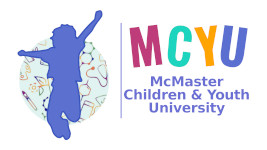Information Box Group
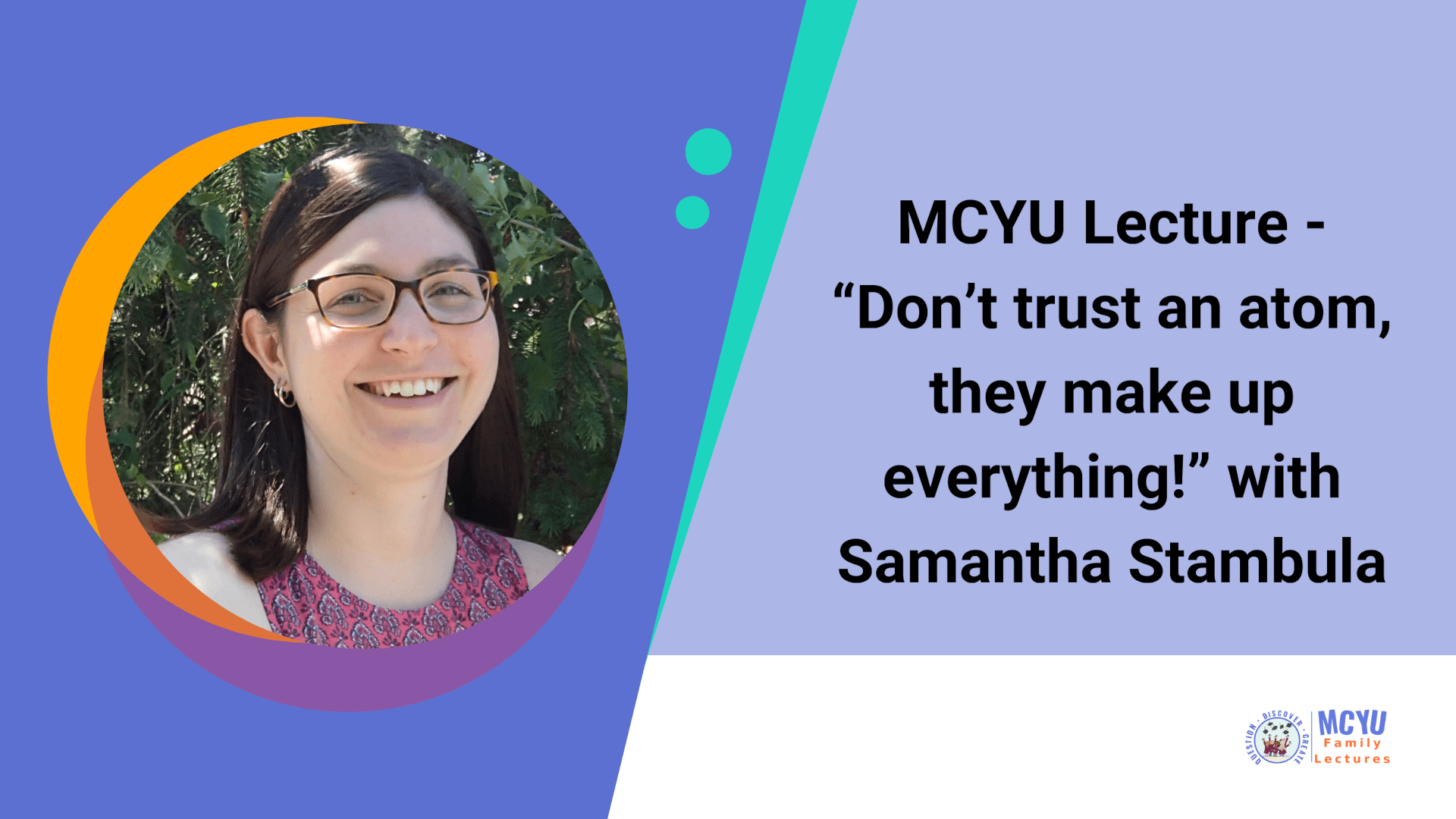
Don’t trust an atom, they make up everything! Learn More
Atoms are unique building blocks and work together to form different materials through the way they interact. Let’s explore how atoms form different materials and why it is a big deal, with Samantha Stambula!
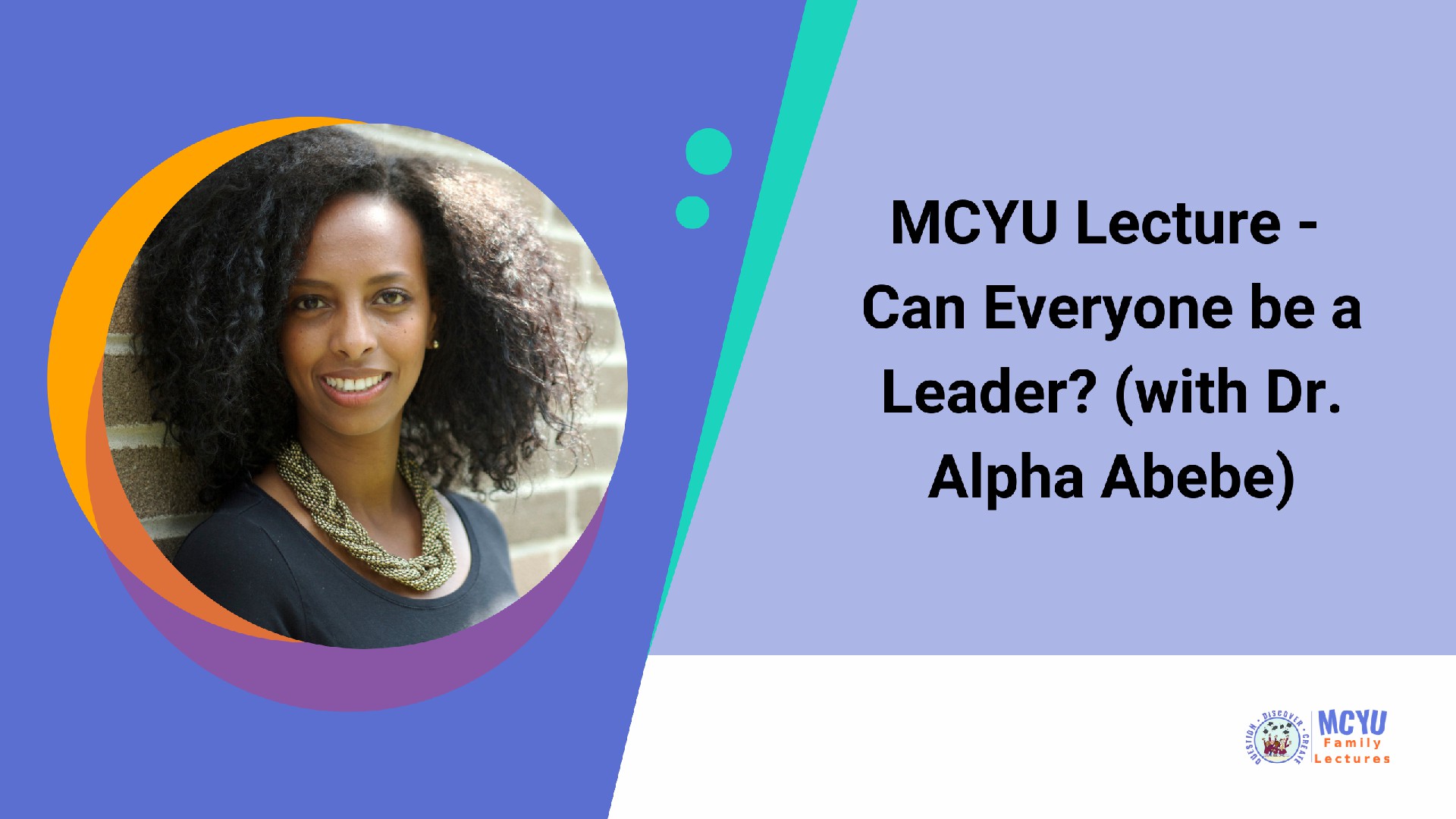
Can Everyone be a Leader? Learn More
Dr. Alpha Abebe discusses what it means to really be a leader and how young people can develop leadership skills.
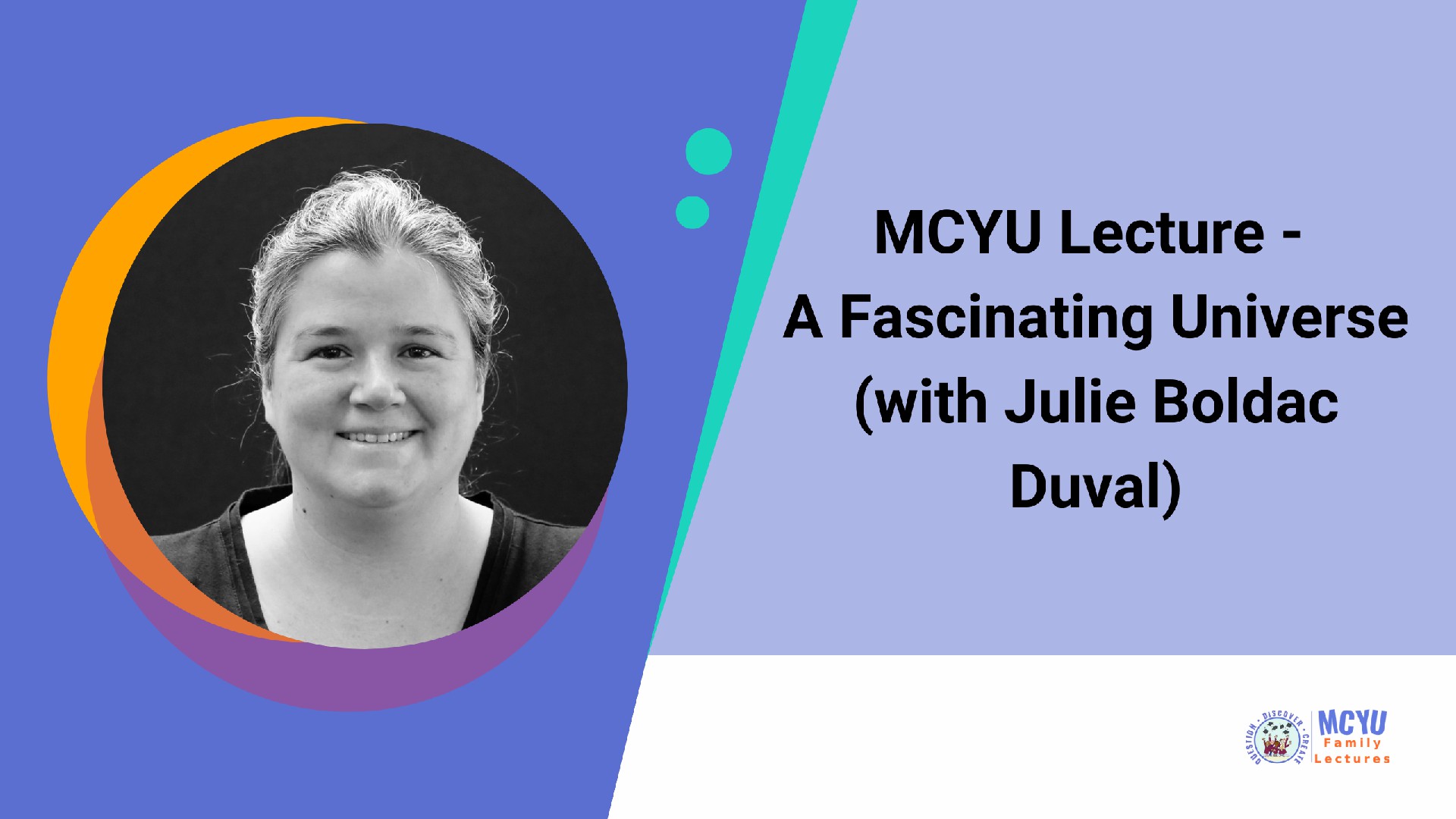
A Fascinating Universe Learn More
Julie Bolduc-Duval takes us on a tour in an out of this world lecture about astronomy, the phenomena and the complexity of space.
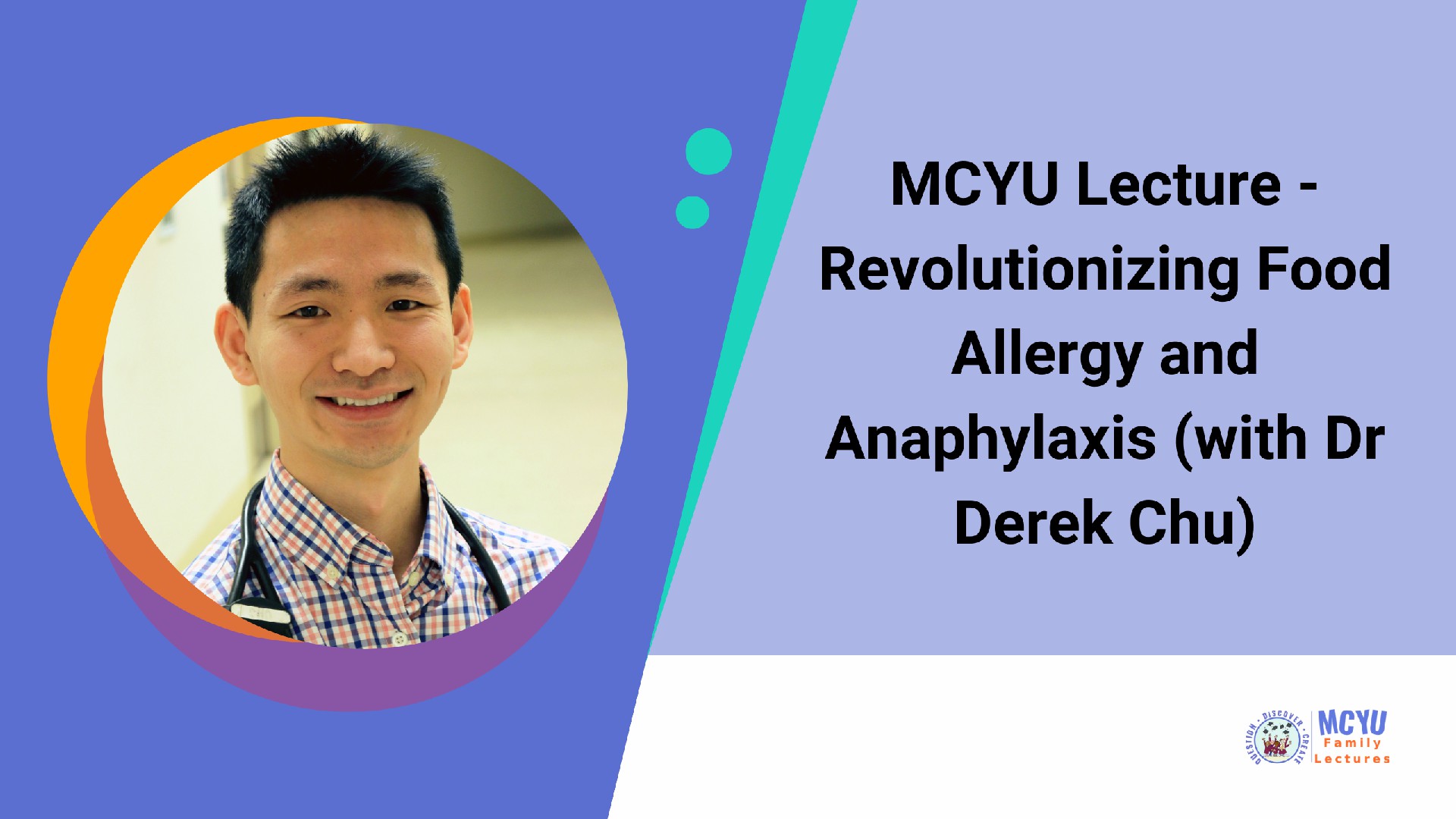
Revolutionizing Food Allergy and Anaphylaxis Learn More
Dr. Derek Chu discusses how food allergy affects health and how discoveries at McMaster are reimagining food allergy and anaphylaxis.
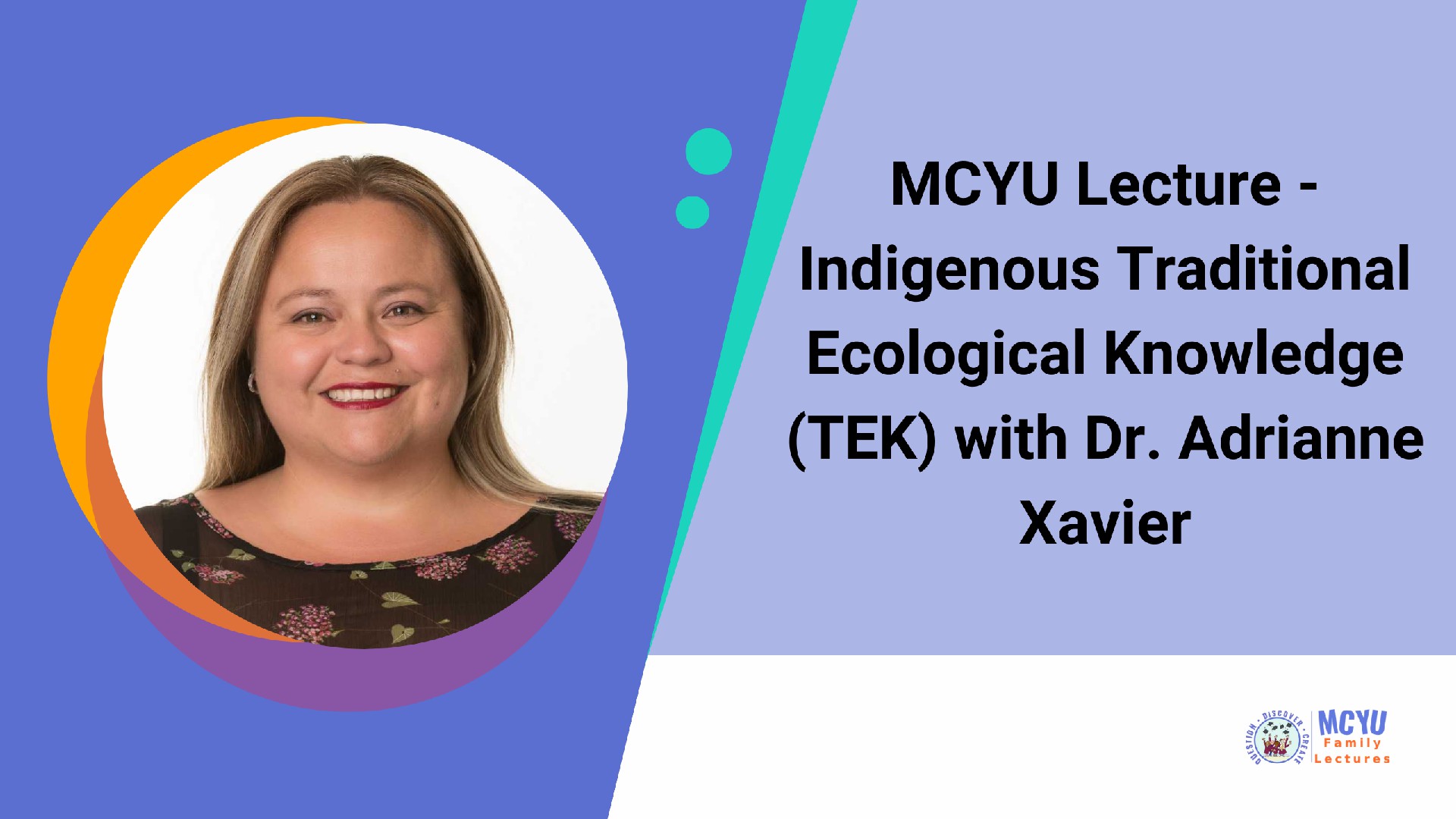
Indigenous Traditional Ecological Knowledge (TEK) Learn More
Dr. Adrianne Xavier discusses how Indigenous culture, community, food and the environment all work together.
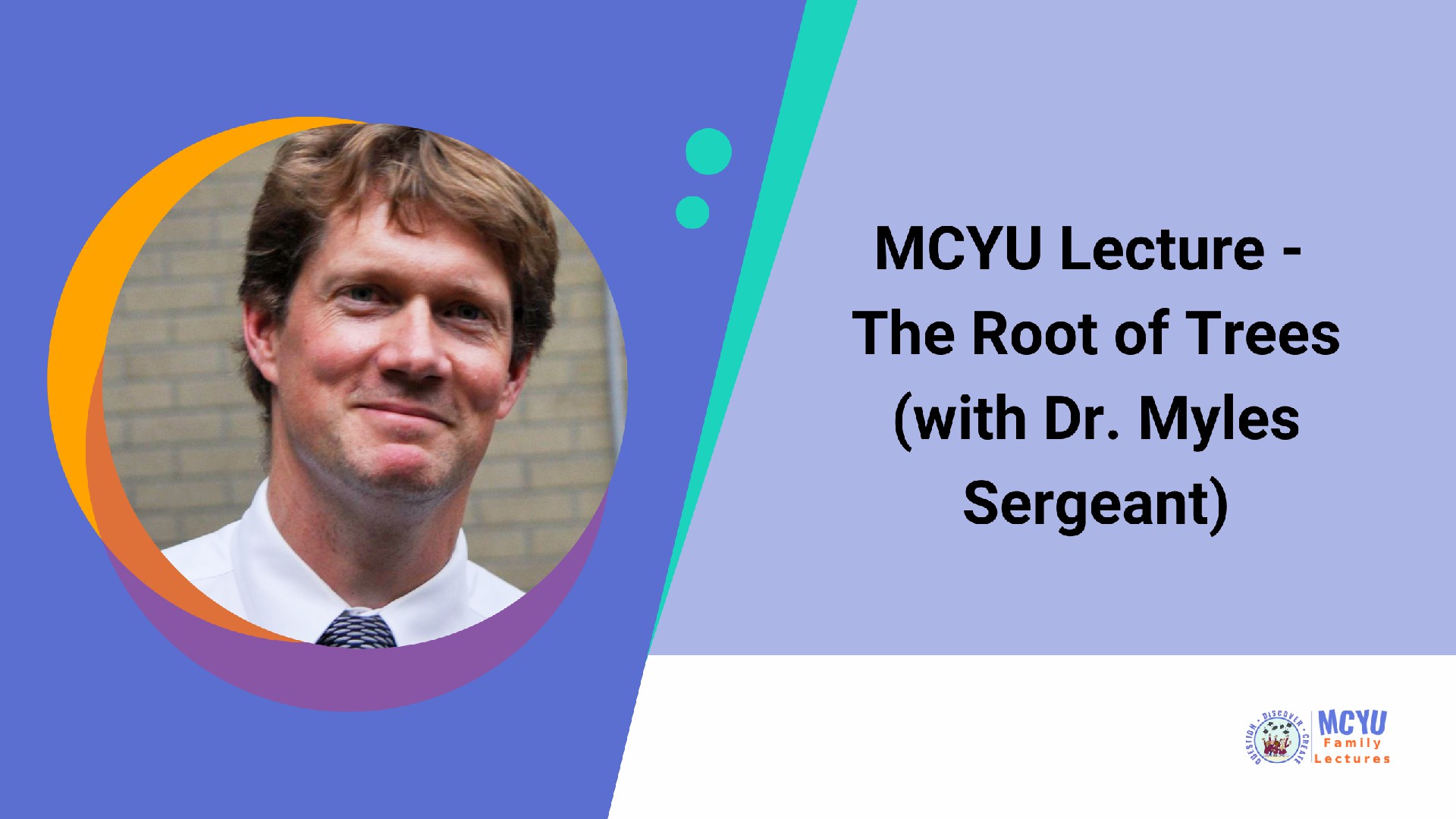
The Root of Trees Learn More
Trees are an important part of our landscape and well-being – they give us shade, they help the air quality and they are beautiful! In this fun and interactive lecture, Dr. Myles Sergeant and a group of his students from the McMaster sustainability program discuss the importance of trees to our landscape and well-being. Together, we explore why we need trees, how to plant them and how to create more urban forests.
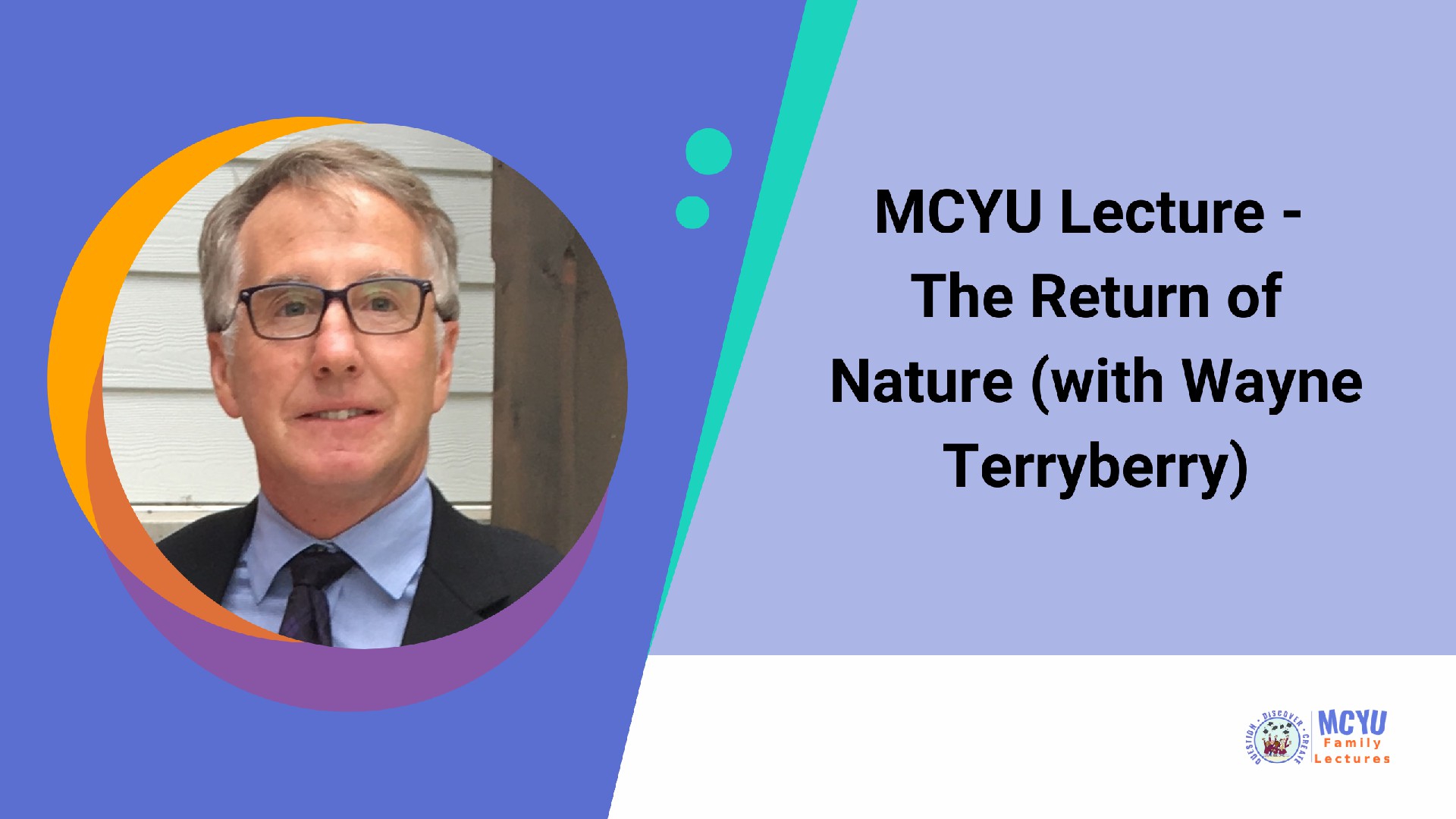
The Return of Nature Learn More
Wayne Terryberry discusses the possibility of restoring a parking lot at McMaster University to a natural environment with marshlands, native plants and trails. Together, we will explore the possible ecological restoration and the environmental significance of this area.
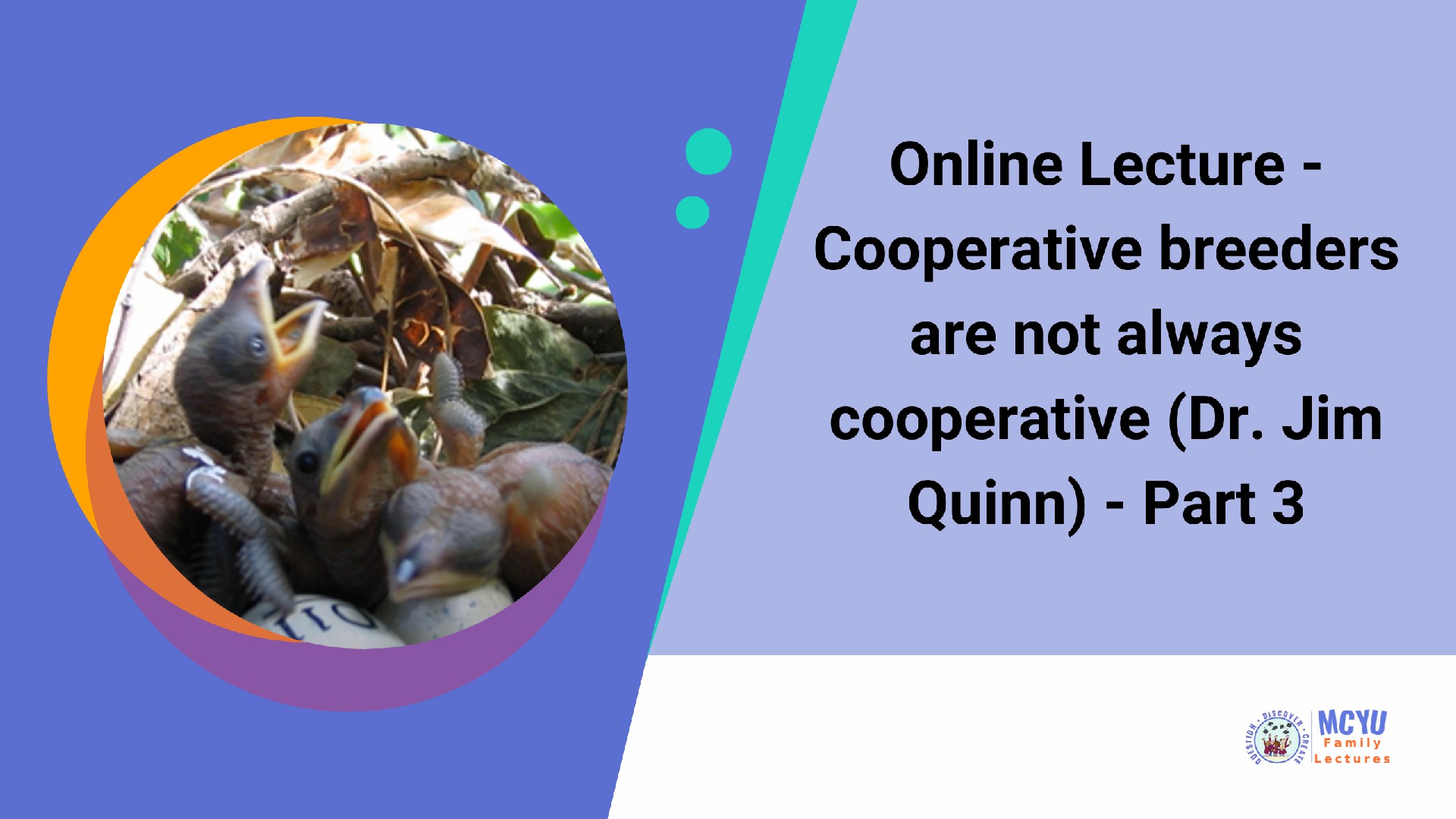
Cooperative breeders are not always cooperative – Part 3 Learn More
In Part 3 of this three-part lecture, Dr. Quinn talks about Smooth-billed Anis in Puerto Rico, including topics like behavioral patterns and referential alarm calls. Two playback experiments and microsatellite DNA fingerprinting are also discussed.
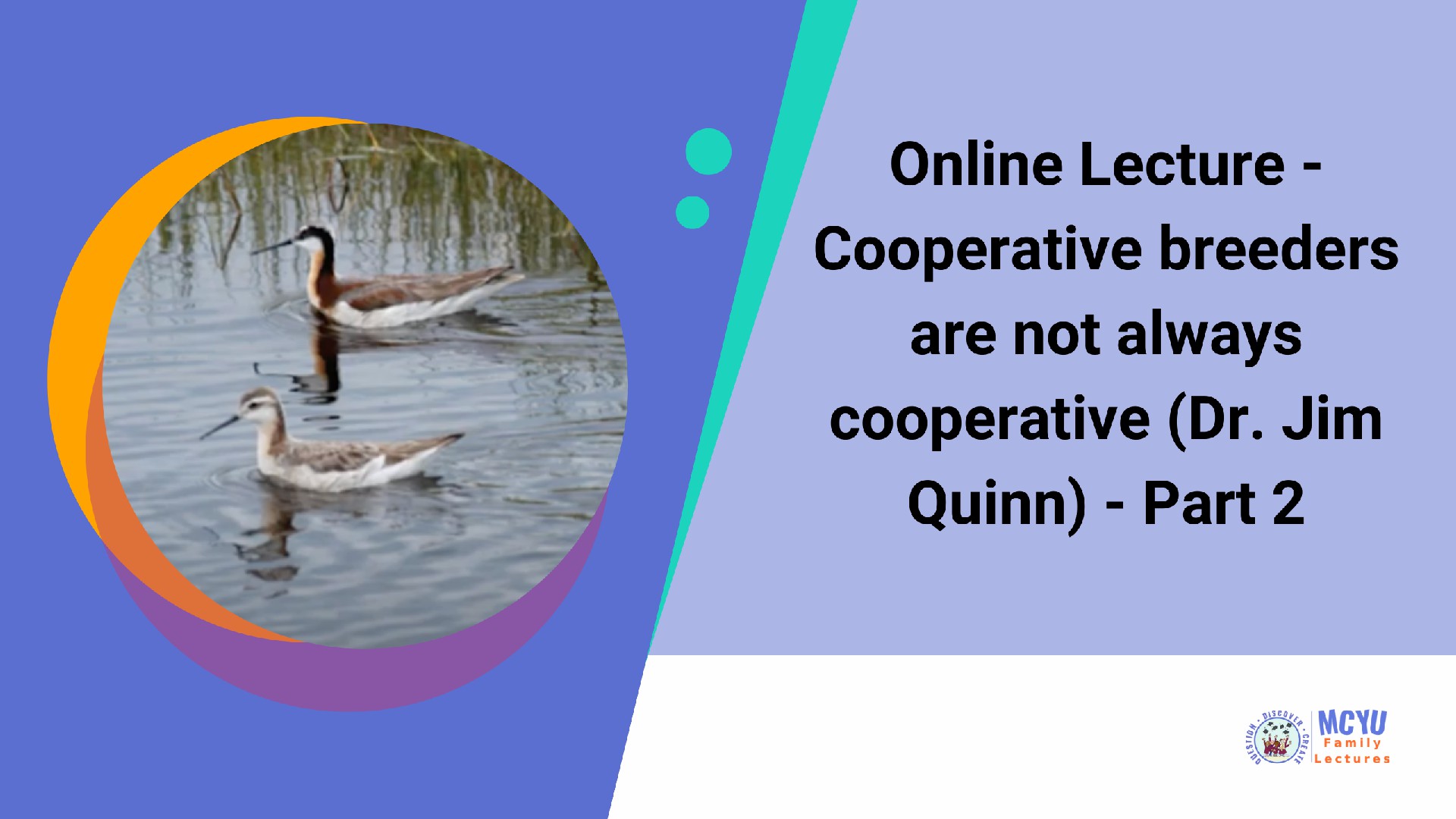
Cooperative breeders are not always cooperative – Part 2 Learn More
In Part 2 of this three-part lecture, Dr. Quinn talks about Pukeko in New Zealand, which includes the following topics:
- Mating systems in birds
- Joint-laying (nest sharing) in Pukeko and smooth-billed anis
- Pukeko mating system, indirect fitness, status signaling and egg laying control
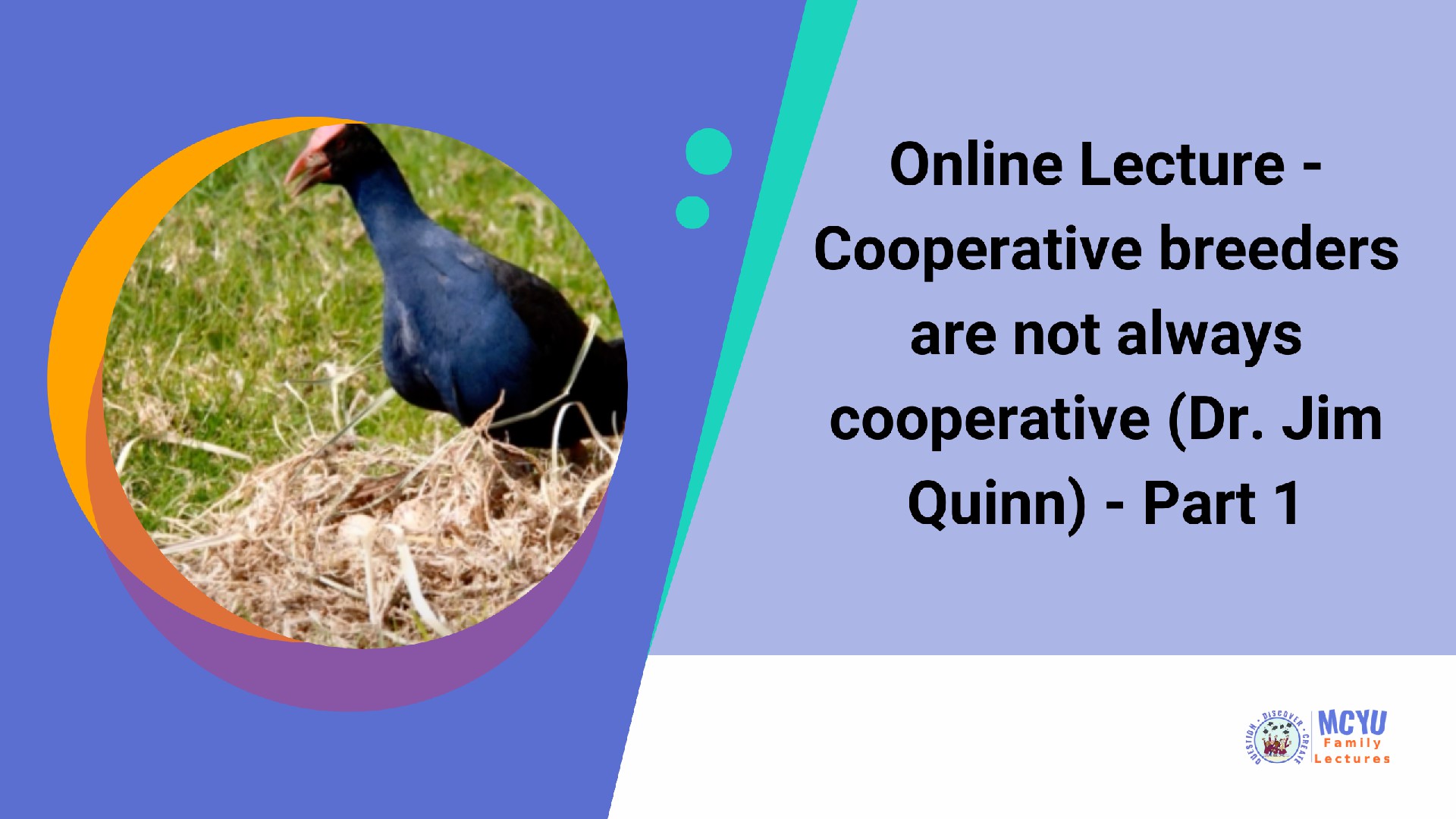
Cooperative breeders are not always cooperative – Part 1 Learn More
In Part 1 of this three-part series, Dr. Quinn talks about topics like: natural selection, genes, behavioral patterns, several species that engage in cooperative breeding and a closer look at Florida scrub jays.
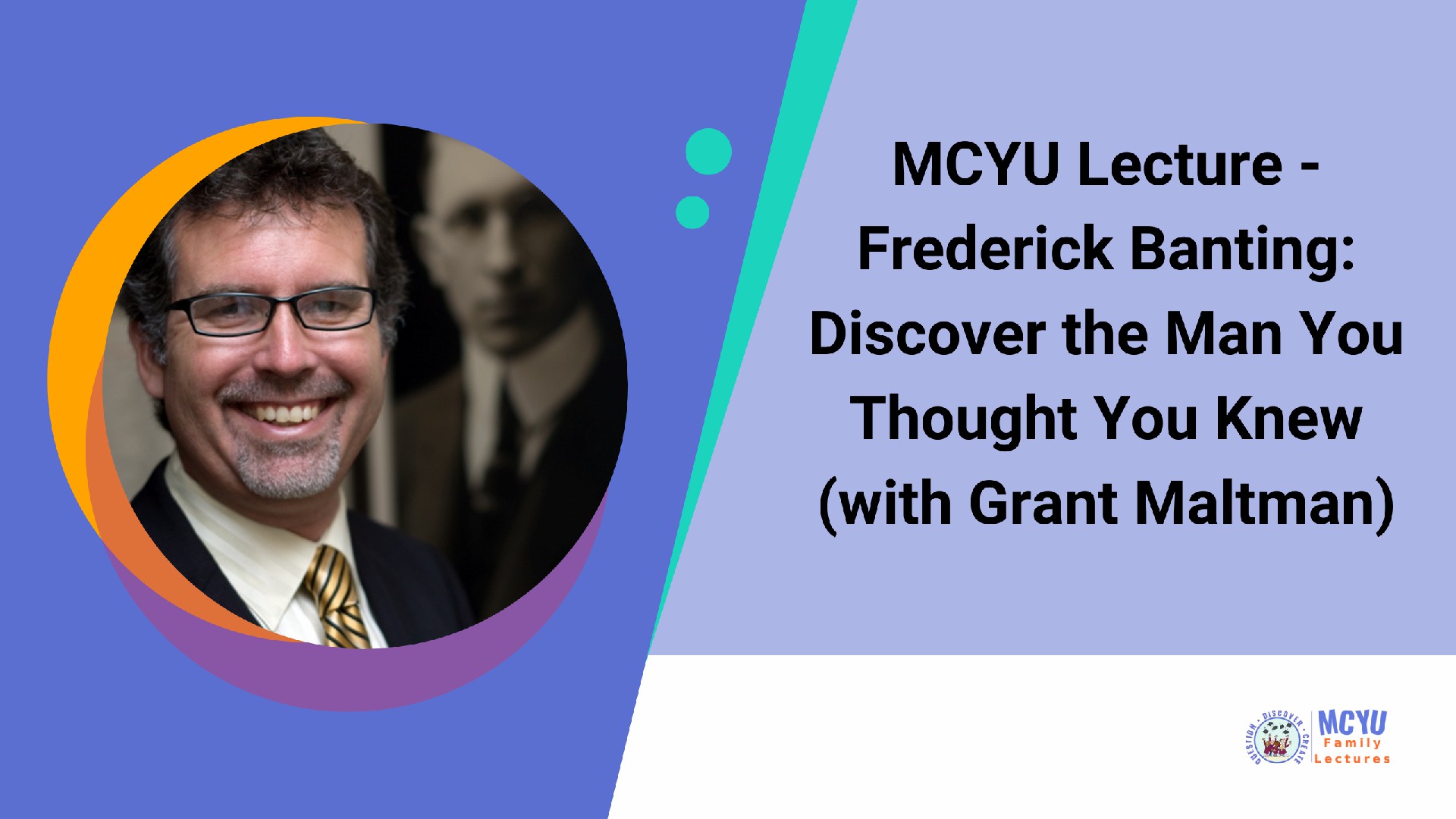
Frederick Banting: Discover the Man You Thought You Knew Learn More
Featuring special guest Grant Maltman, Chief Curator of Banting House – The Birthplace of Insulin. Maltman joins us virtually from Sir Frederick Banting’s bedroom, where Banting woke up at two o’clock in the morning on October 31, 1920, with the idea that led to the discovery of insulin. Includes Q&A and Maltman’s lively stories about Banting.
Discover the man you thought you knew.
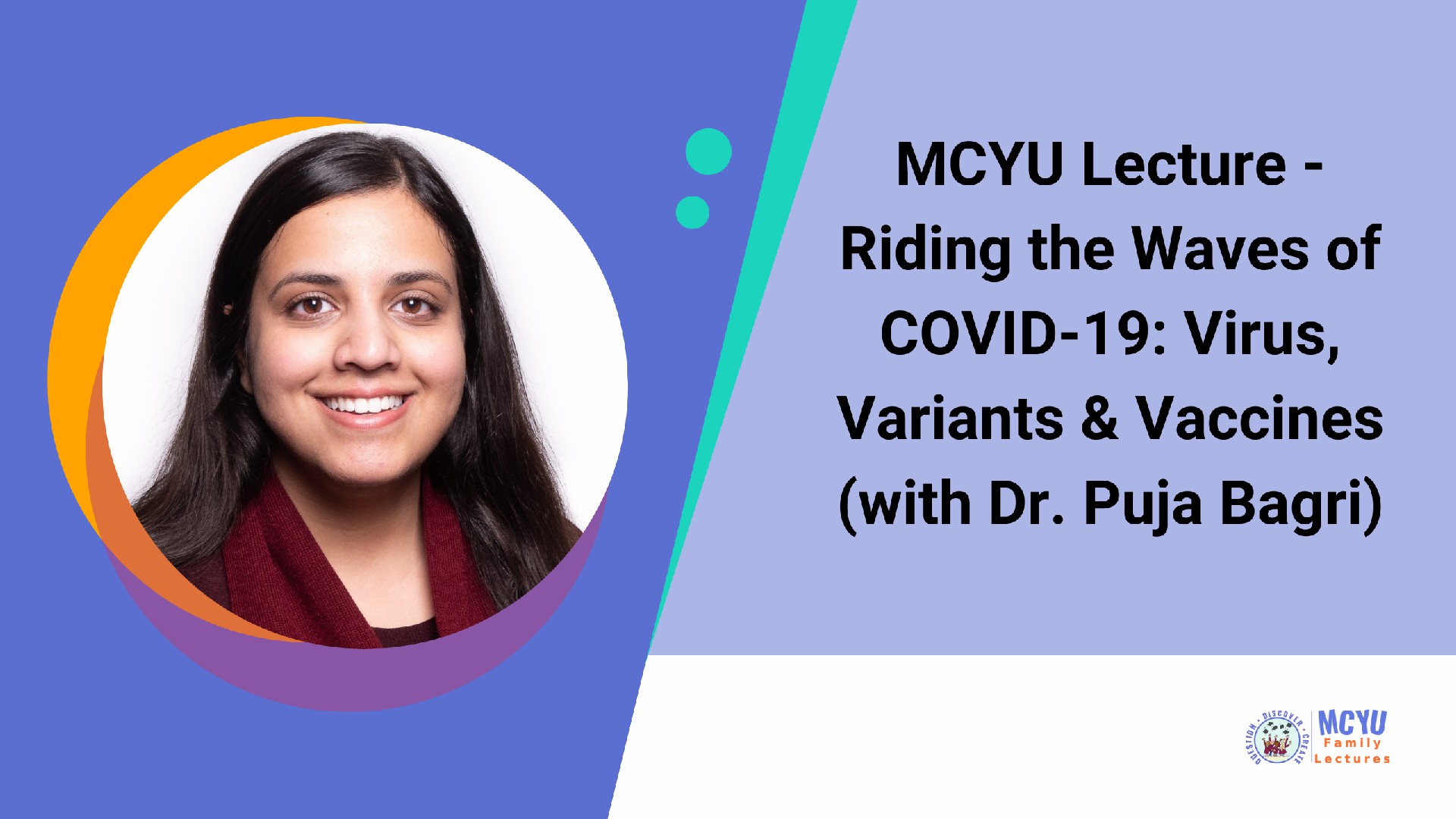
Riding the Waves of COVID-19: Virus, Variants & Vaccines Learn More
Over the past year, the COVID-19 pandemic has changed the way we live. Do you understand why it’s important to wear masks or keep a fair distance between one another? Or what it means when we hear that new variants of the virus are here or how this affects everyone? Join Dr. Puja Bagri and discover why the virus that causes COVID-19 has been so tricky to eliminate and discuss how vaccines will help us return to our normal lives.
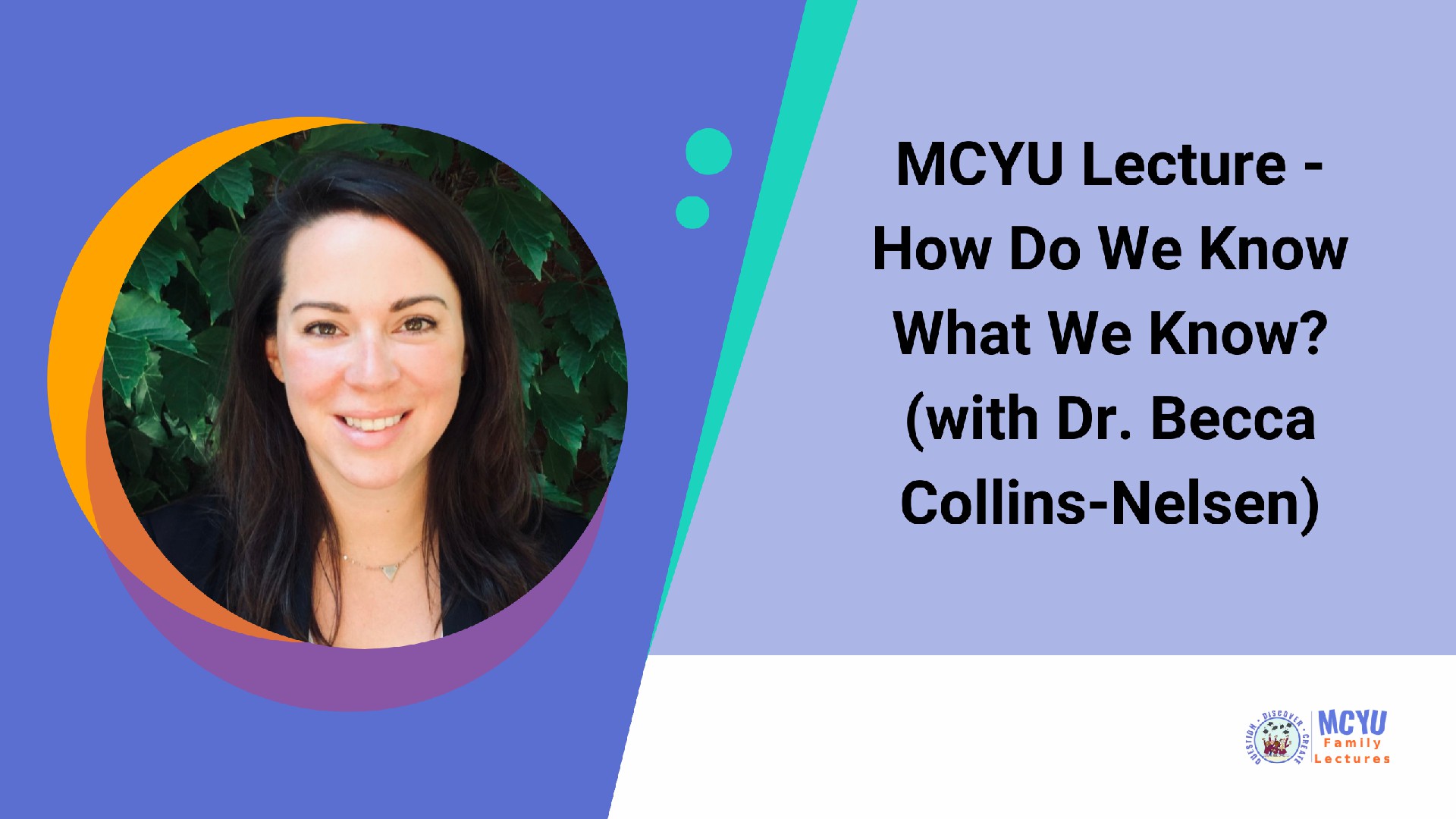
How Do We Know What We Know? Learn More
Have you ever asked yourself how you know something? Have you seen it yourself, did someone you trust tell you? Also, how is it that many people in society agree about certain things, like what makes up good manners? Who decides and how did everyone come to agree? Join Dr. Becca Collins-Nelsen and discuss how questioning ‘how we know things’ can help us become critical thinkers and why this is important!
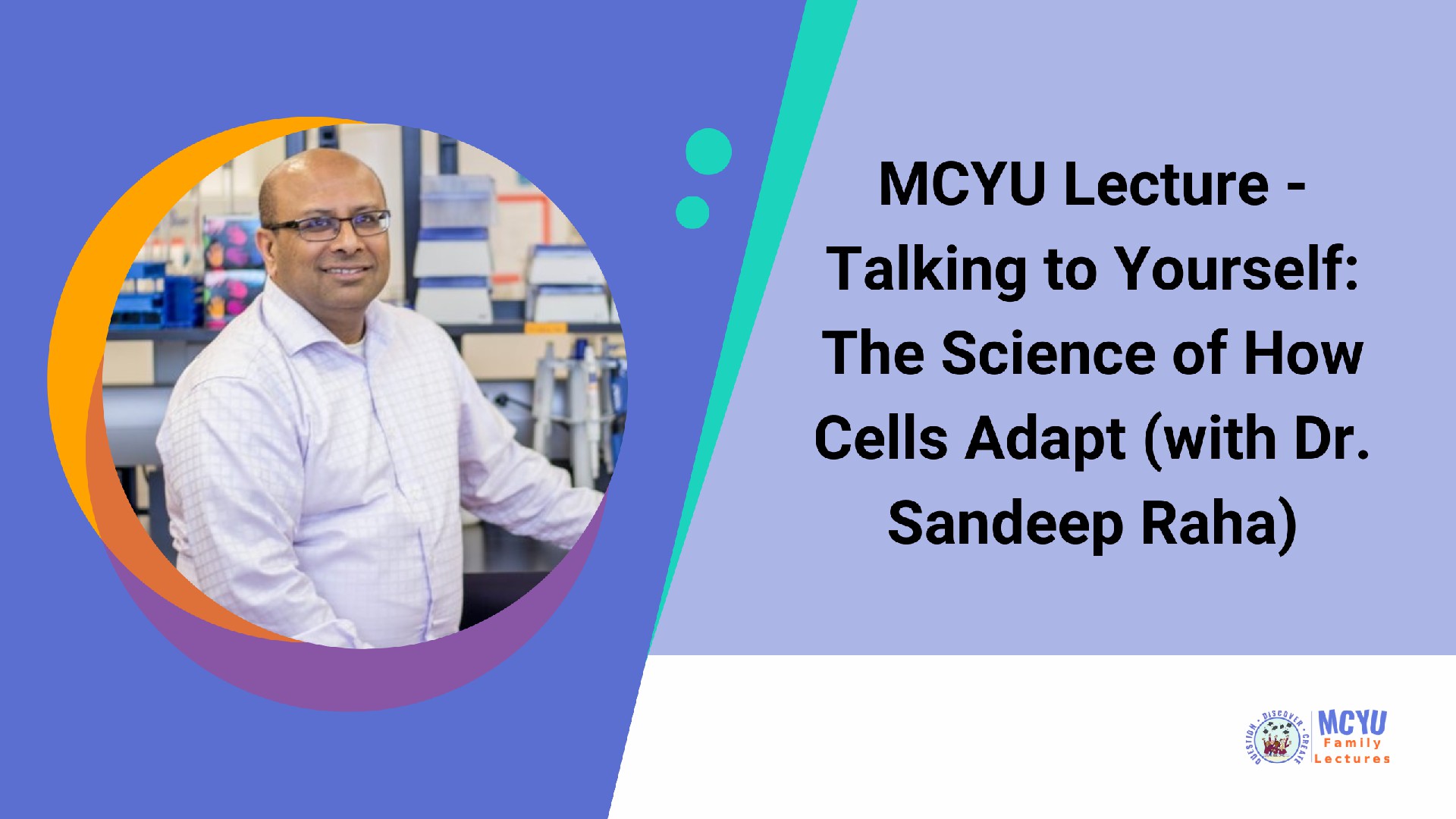
Talking to Yourself: The Science of How Cells Adapt Learn More
Did you know that cells in the body of plants and animals have their own language? They can scream “help” or “stay away”! This helps our body to adapt to future stress. For example, when we get sick by breathing in a germ, how does our whole body feel sick? How do we get stronger and faster when we exercise? Do you know that mothers can even communicate with their babies in womb to prepare them for when they are born? Together, we’ll learn about some of the conversations IN your body and talk about some ways in which you can try to tune in to the signals.
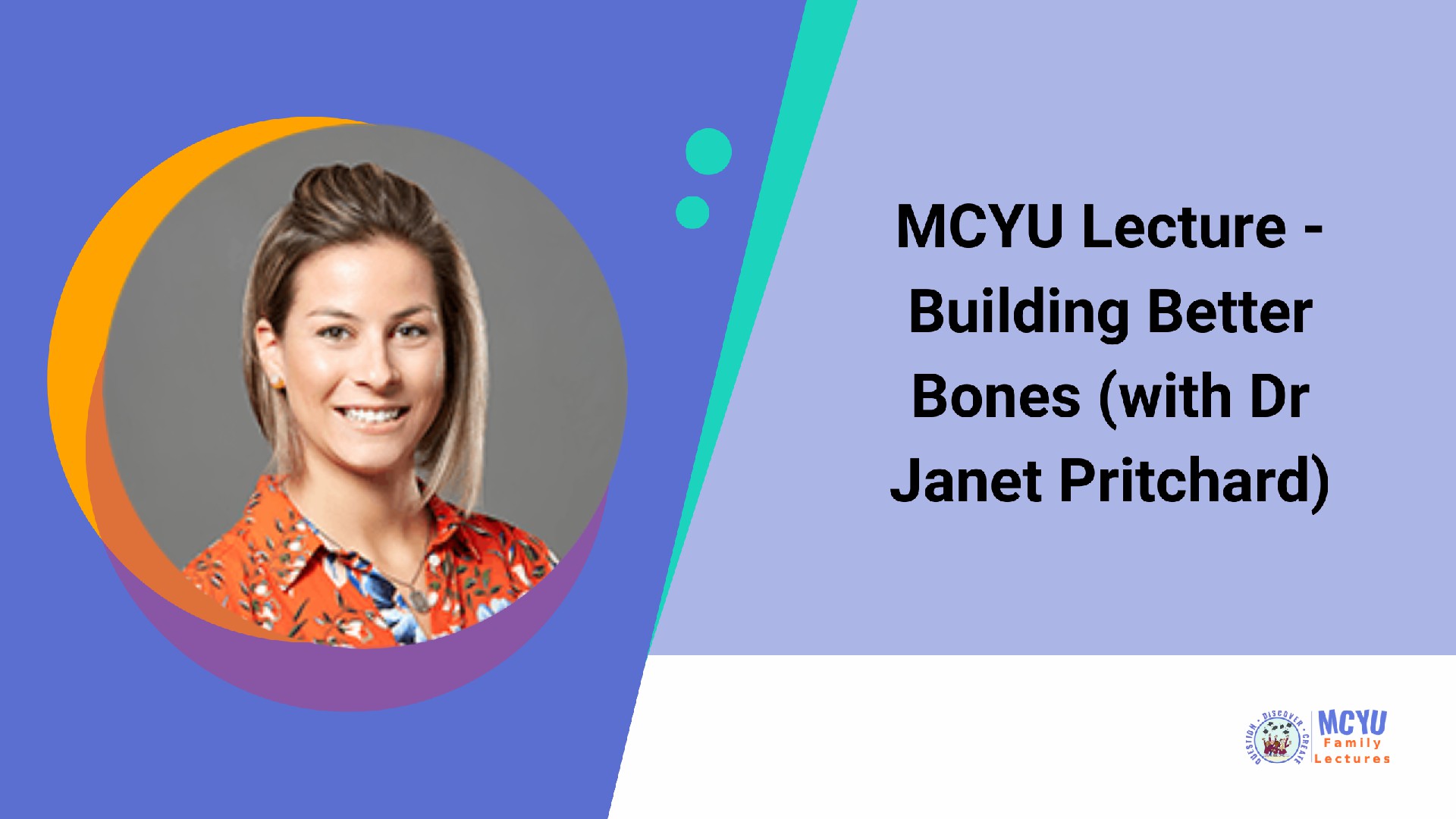
Building Better Bones Learn More
Have you ever broken a bone? Ever wonder if there are things you can do when you’re young to make your bones as strong as possible to prevent broken bones later in life? Join Dr. Pritchard to discover things you can do NOW to make sure your bones stay healthy and keep you standing tall for life!
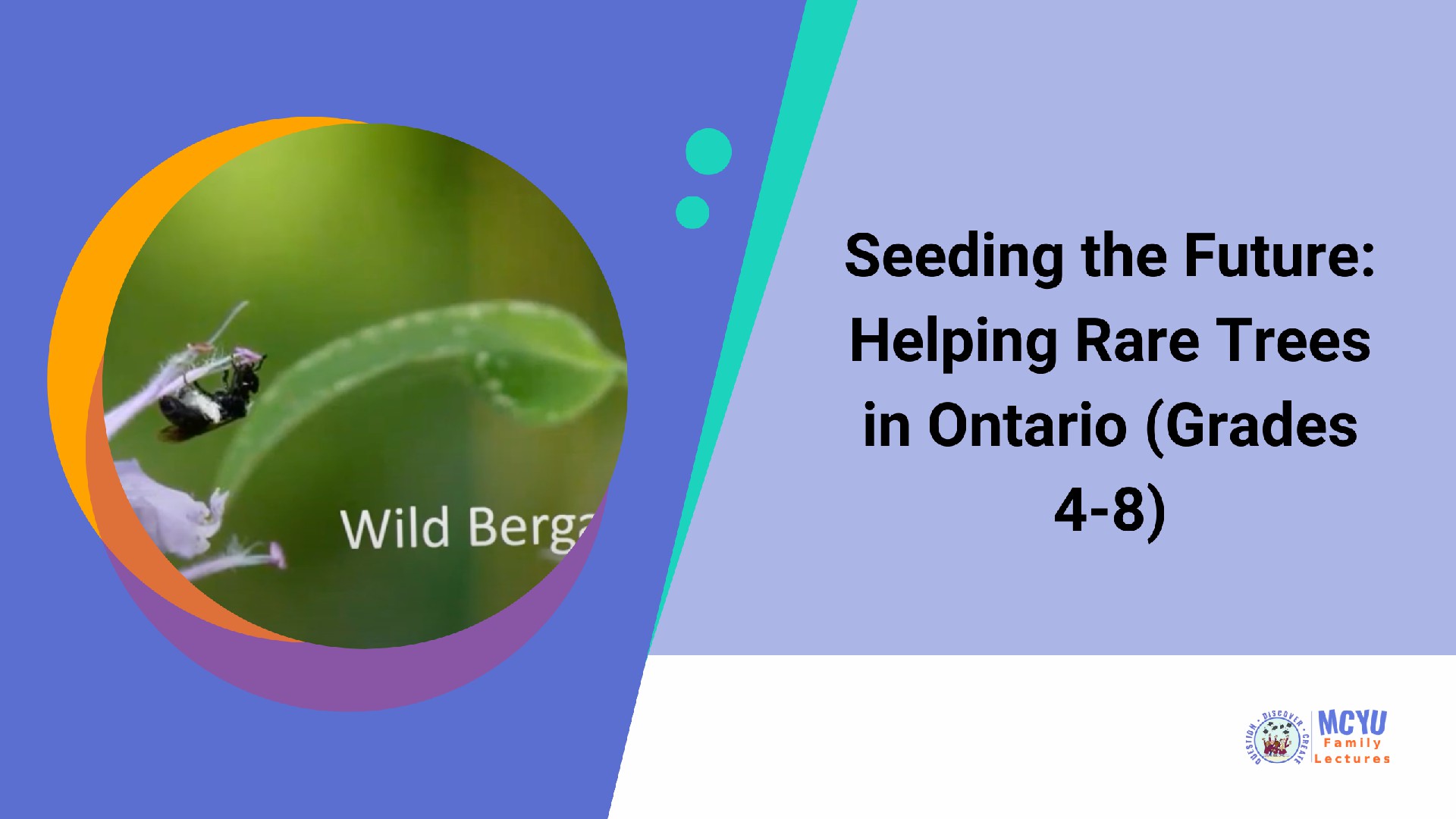
Seeding the Future: Helping Rare Trees in Ontario (Grades 4-8)
Tune in to Stefan Weber’s presentation and discussion with students from the Hamilton Wentworth District School Board, Grades 4 – 8, on The Carolinian Life Zone in Canada, rare native trees in Hamilton, Ontario, how to grow trees from seeds, ecosystem service and the role of native plant communities.
Supporting Materials:
Hamilton Public Library’s All About Tree’s Booklist (PDF)
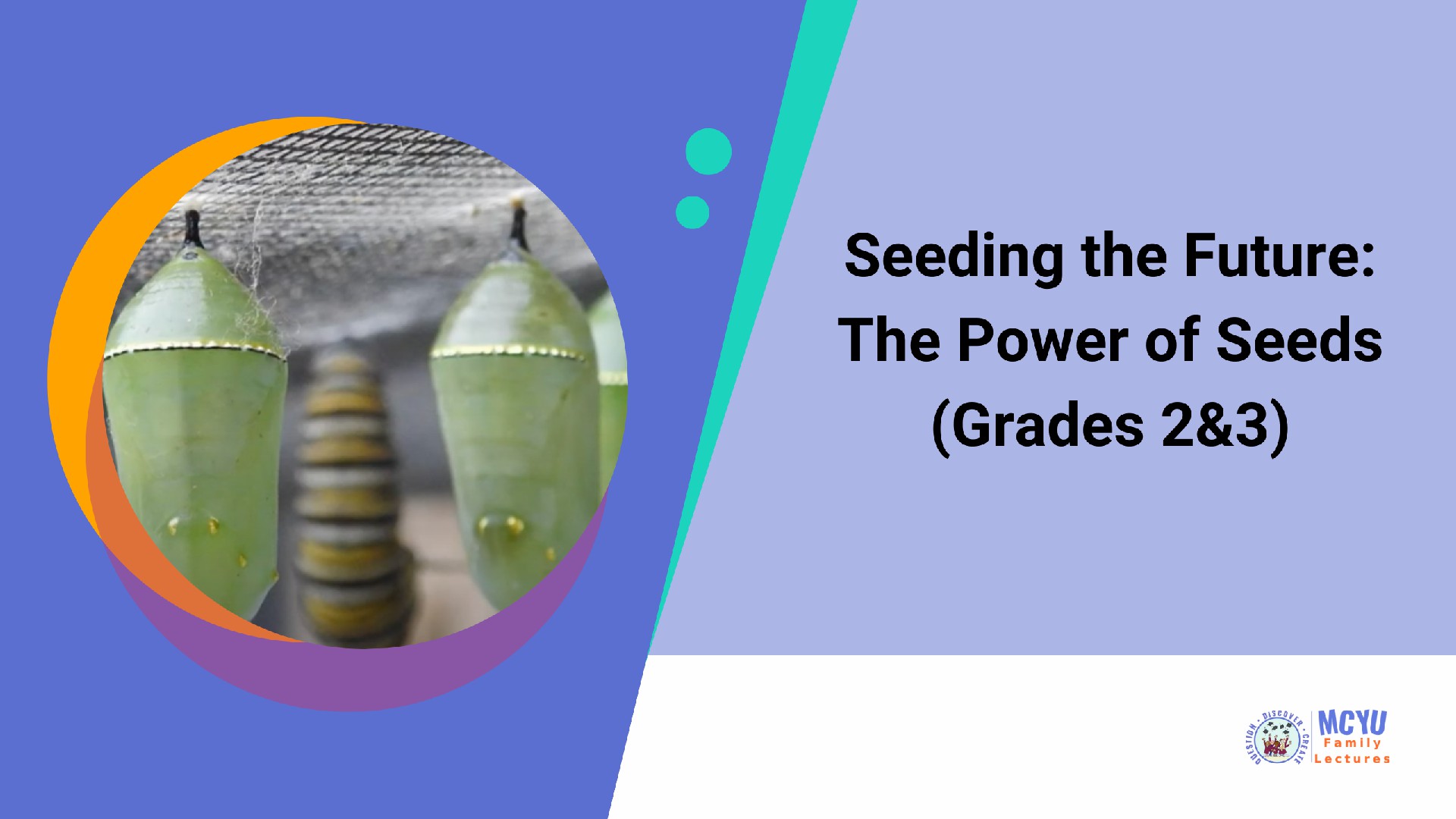
Seeding the Future: The Power of Seeds (Grades 2 and 3) Learn More
McMaster University Grad Student, Stefan Weber presents and discusses the power of seeds with Grade 2 and 3 students from the Hamilton Wentworth District School Board. Tune in to learn about pollination and pollinators, fruit and seed diversity, growing plants from seeds and why we need plants for healthy food, clean air and water.
Supporting Materials:
Hamilton Public Library’s All About Tree’s Booklist (PDF)
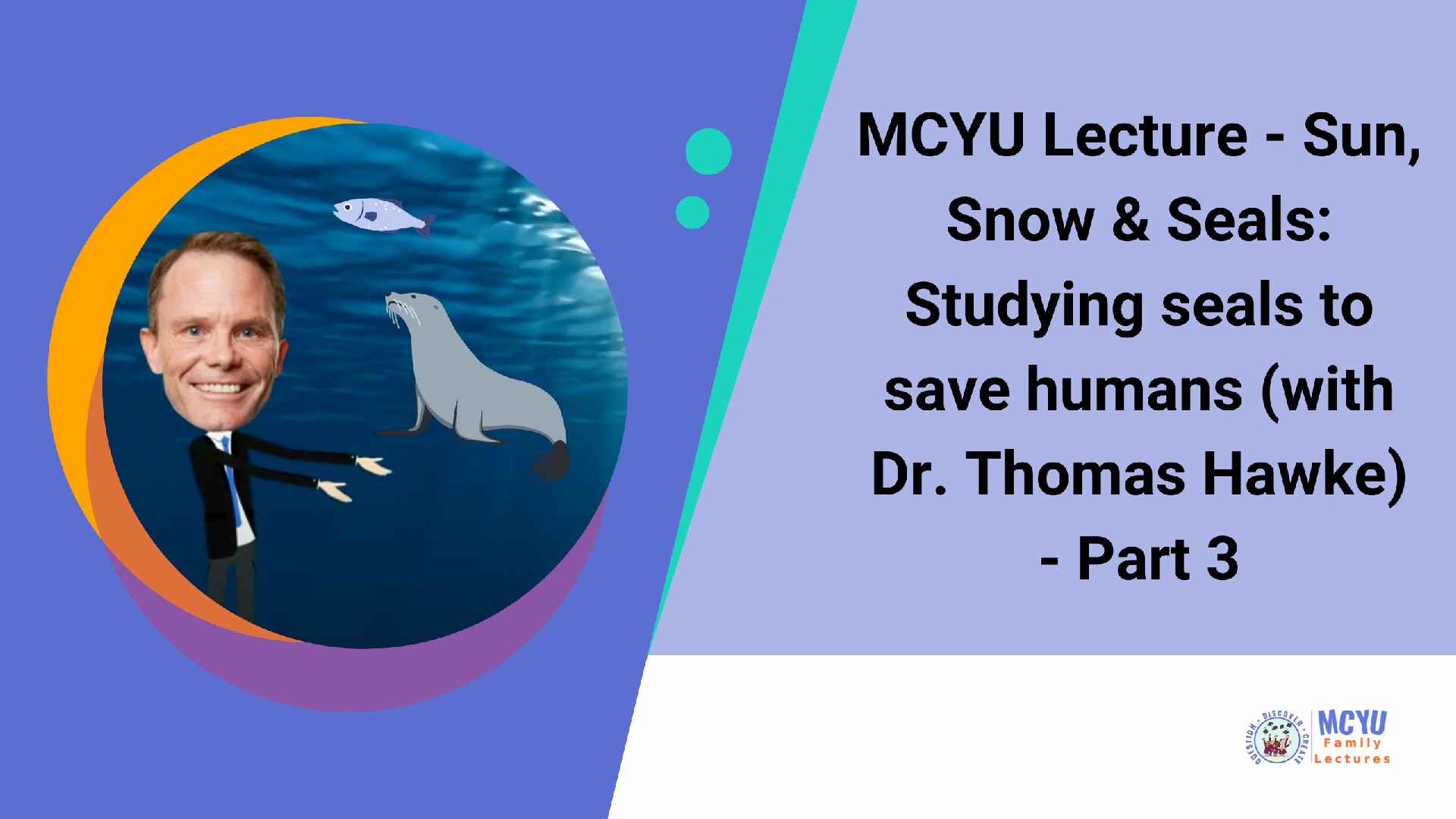
Sun, Snow & Seals: Studying seals to save humans (Part 3) Learn More
In part three, Dr. Thomas Hawke’s Research on Seals in Antarctica. Discover what we can learn about human biology and medicines, by studying seals.
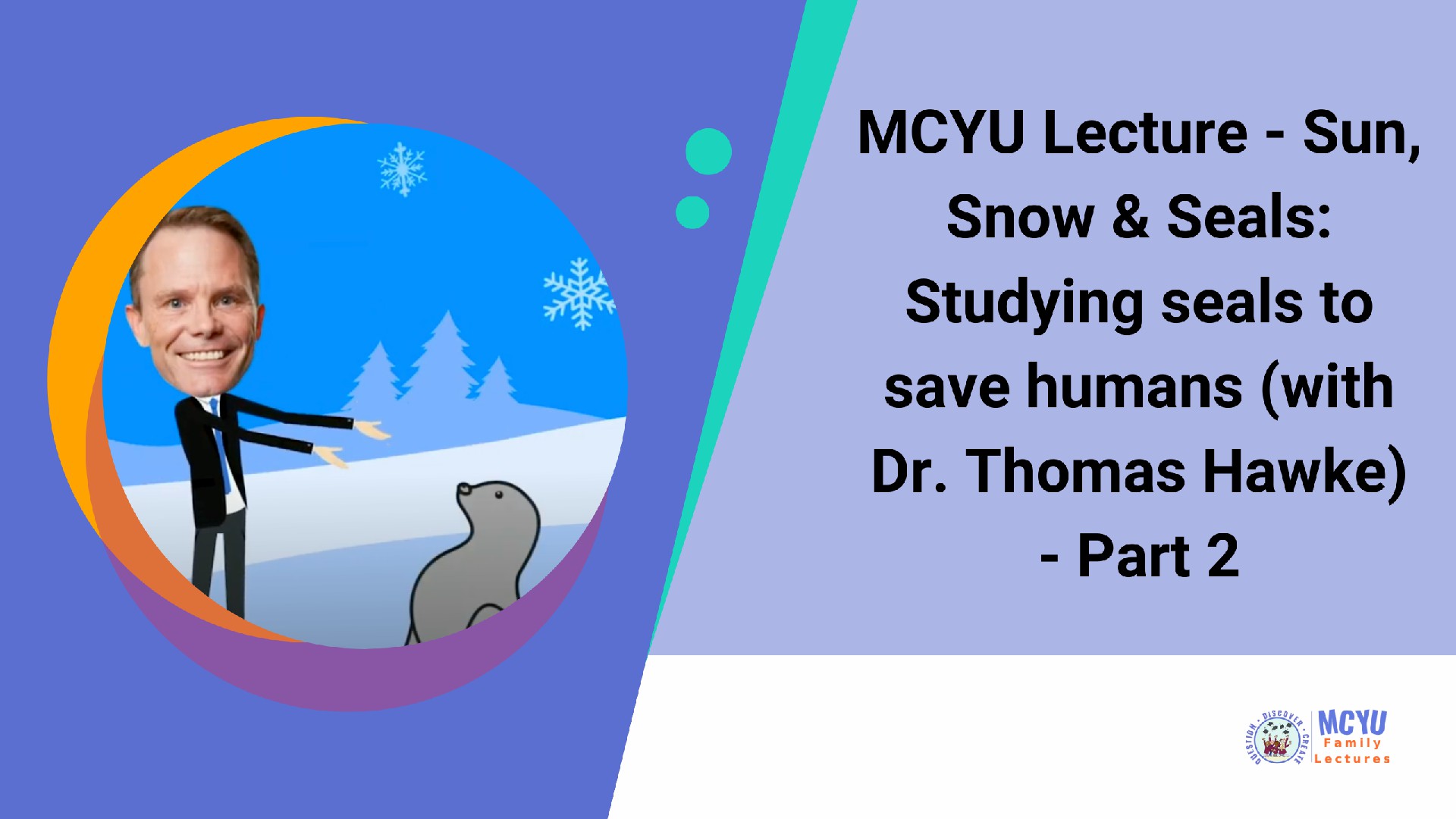
Sun, Snow & Seals: Studying seals to save humans (Part 2) Learn More
In part two, Dr. Hawke shares photos and stories of his time spent in Antarctica, and we get a glimpse of a researcher’s journey and experience, working and living in Antarctica.
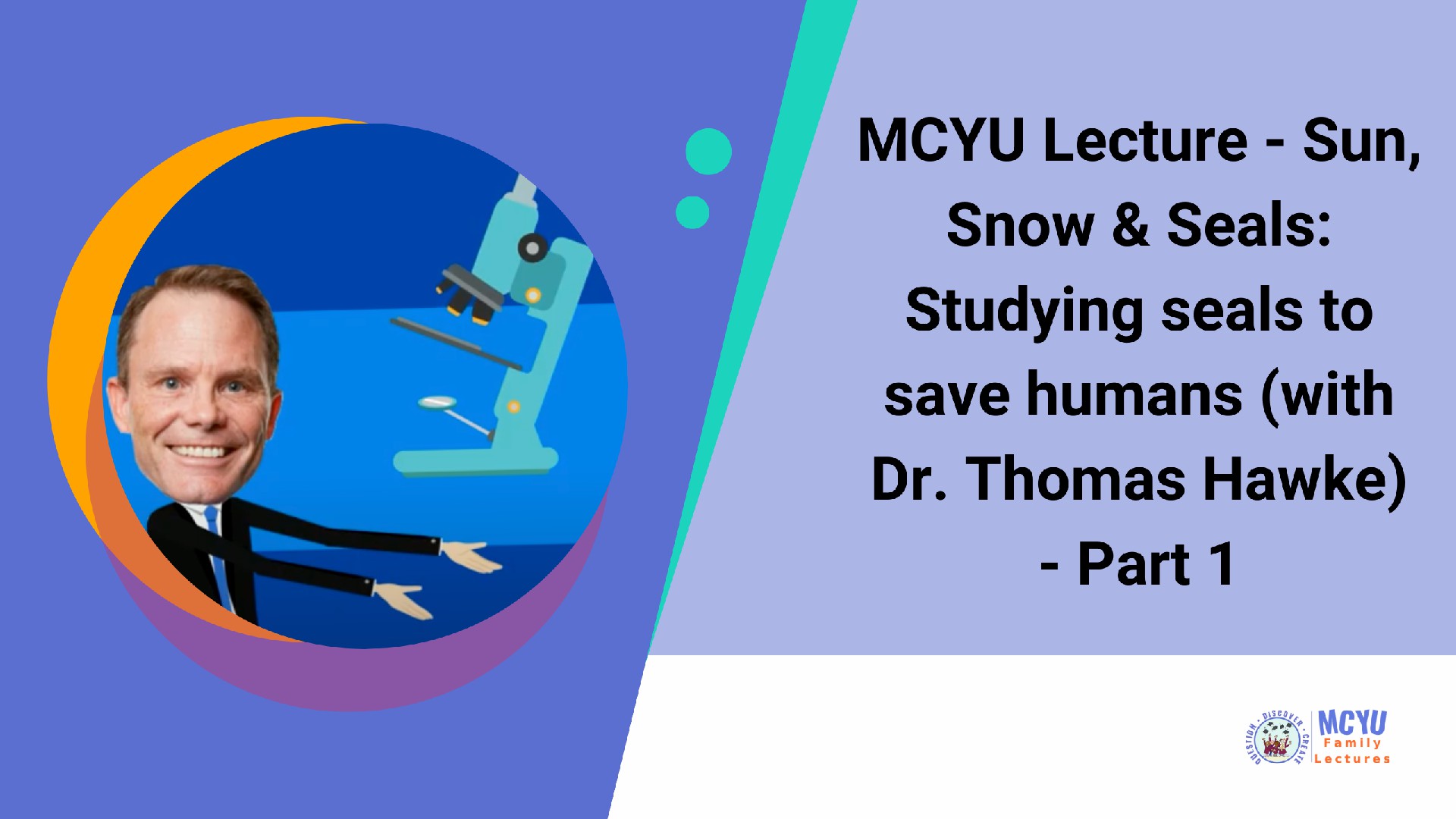
Sun, Snow & Seals: Studying seals to save humans (Part 1) Learn More
Seals can hold their breath for a long time while they swim and chase their food! How can understanding how they do this help us design better medicines for people who are sick? Join us in this three part series to learn about seal research in Antarctica!
In part one, Dr. Hawke tells us about how Antarctica was discovered and teaches us about the terrain, climate and wildlife there painting a vivid picture of the harsh climate

